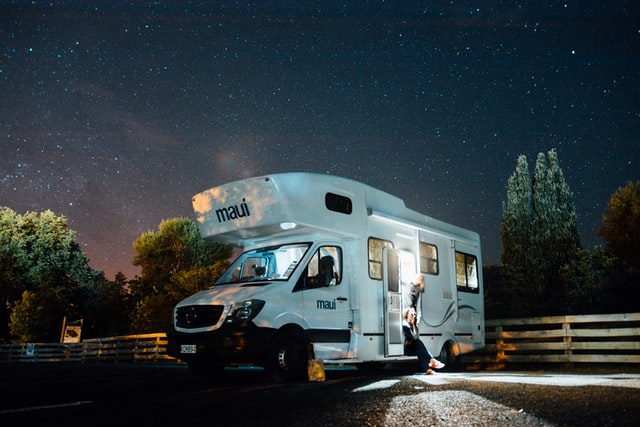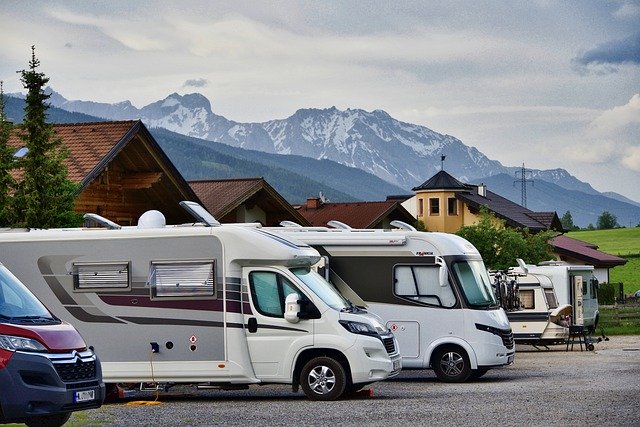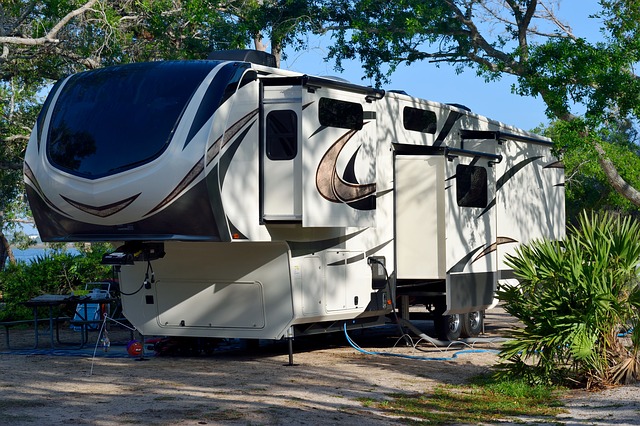
CLASSES OF RVs A – C
cannon
- 0
Before venturing into the purchase of a motorhome, it is important to understand the various types that exist and how they differ before deciding which one is best for you. There are three primary categories of motor homes – Class A, B, and C. While all three share similar features, the variations on these features will help determine which class best suits your needs.
The Class A motor home is the largest and most luxurious of the three types. While the RV can be as long as 45 feet, despite the size, no special license it required to drive the vehicle. Variants of this type of motor home are converted buses and purpose-built models. To support the size and weight, the Class A is built on a commercial truck or bus chassis, like the 18-wheelers seen traveling the highways. These chassis are designed to carry a heavy load, and with all the luxury amenities found in this type of motor home, this is essential. It is not uncommon to find a Class A motor home with a fully equipped kitchen, as well as a laundry machine and dryer, full bathroom and shower, and a deluxe home entertainment system. With all these amenities, the Class A is more like a home on wheels.
The living quarters on a Class A motor home are also luxurious, with a residential feel and lots of space. There is a full master bedroom sectioned off in the back of the vehicle, with two slide-outs to expand the living area, and couches that fold into beds. Some of the larger versions even have bunk beds. The layout can often sleep up to 8 – 10 people. The washroom is often three-piece – toilet, sink, and shower – while some even have a full bathtub. There is plenty of storage space in the Class A motor home. With the luxurious interior and ample storage space, the Class A is best suited for retirees living full time on the road or dedicated traveler on the road for extended periods of time.
Although the size and luxury are attractive, the Class A can also be intimidating to drive. Narrow roads and mountain passageways are difficult to maneuver. Once you have settled into the campsite, running errands or going on day trips is not possible. Even at the campsite, it may be difficult to find a parking spot large enough for the RV. All these luxuries and space do come at a price, with gas mileage as low as 8 – 10 miles per gallon, and with the cost of repairs and insurance also high. The price for a luxurious motor home is not cheap. The cost of Class A motor homes begins at $50,000, with some as expensive as $200,000.
The Class B motor home tends to look like a van. In fact, it is commonly referred to as a camper van or a van conversion. It is a much smaller style compared to the Class A, barely qualifying as a motor home. It is mounted on a standard full-size van chassis. It does have a raised roof, allowing an average size person to stand up. Some of the more extravagant versions of this RV have slide-outs, but this is not the norm. The Class B comes with standard amenities such as a refrigerator, sink, and well-equipped kitchen, but all of these are smaller in size. The living space is compact, with little room for storage, and not much room to move around in, especially for more than two people. The washroom is referred to as a wet bath, meaning that the toilet and shower are in the same space.
The most distinct advantage to the Class B is its size. It’s easy to drive and maneuver around tight campgrounds, parks in most standard size lots, and there is no need to tow an additional car on the trip as it can be used to run around in – assuming you don’t mind releasing the hook-up at the campsite every time you want to go somewhere. Of the three classes of motor homes, this is the most economical. While the initial purchase price is still a little expensive, its better on fuel, and the insurance is reasonable. Due to its size and lack of storage space, the Class B motor home is best suited to the single traveler or couple with no kids who may still be working but want to get away for the occasional road trip. Economy is one of the selling features of the Class B motor home. You can buy one for an affordable price, ranging between $40,000 – 80,000.
The Class C is the medium-sized motor home, with mileage better than Class A but less than Class B. It is about 20 – 33 feet in length, often built atop an existing truck or van chassis specially designed for an RV. The Class C is more spacious than the Class B, with amenities like Class A, although without the luxury. It has a separate toilet and shower, adequate kitchen, and plenty of sleeping room. Some even have a master bedroom in the rear, and often an over-cabin sleeping area. The motor home can sleep 4 – 8 people comfortably.
Maneuverability and parking remain a challenge in some restricted campsites, and it more than likely will not fit in the garage at home. Given that this style is best suited to families who want to vacation on a budget, it is good that the Class C lends itself to towing the family car around. Once it is parked at the campsite it can remain there, with the extra vehicle available for the family excursions. The fuel costs are reasonable compared to the Class A, as is maintenance and insurance. You can also purchase a Class C motor home for a reasonable price as well. They start at $50,000 for the entry-level model, but as you add on amenities, it can go as high as $100,000.
The three classes of motor homes, while sharing similar features, also possess some very distinct differences as well. Knowing what you need in a motor home, and how want to use it will help you determine the best class for you.
Related
Post Disclaimer
The information contained in this post is for general information purposes only. The information is provided by me and while we endeavor to keep the information up to date and correct, we make no representations or warranties of any kind, express or implied, about the completeness, accuracy, reliability, suitability or availability with respect to the website or the information, products, services, or related graphics contained on the post for any purpose.

